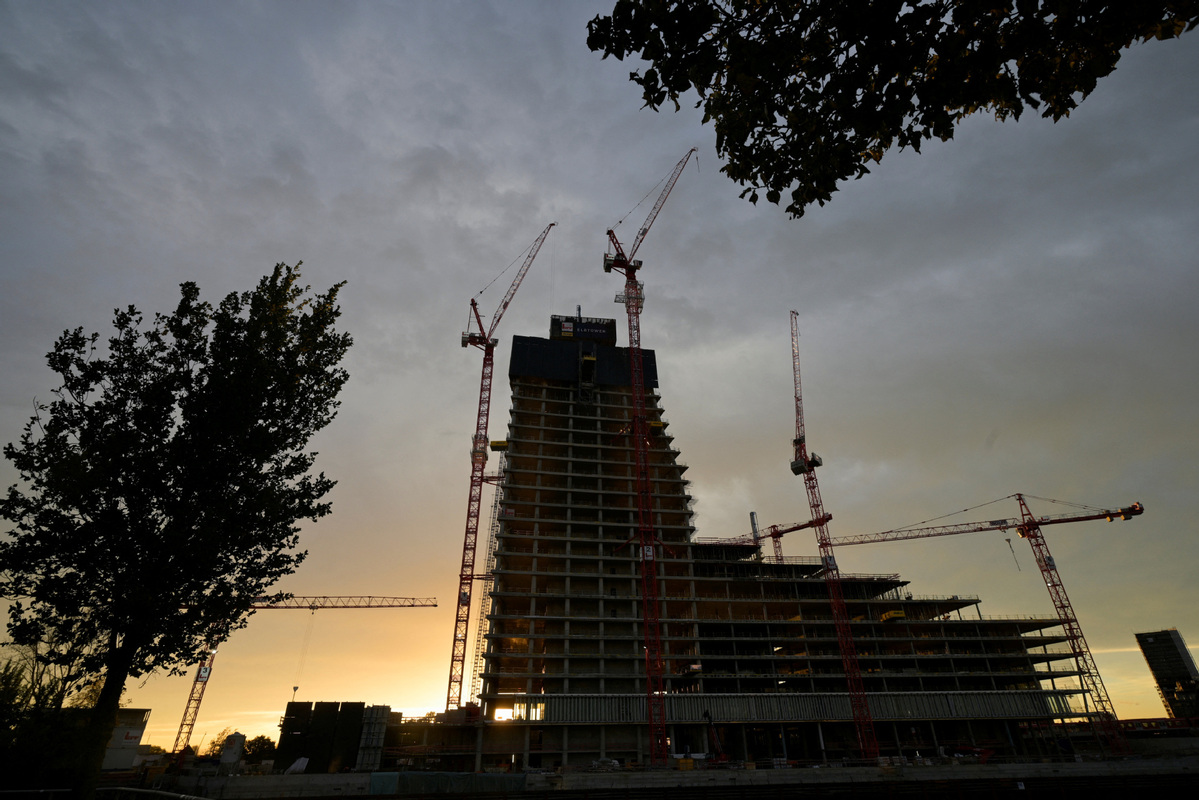Skyscraper halt exposes German economic woes
By Julian Sheain London | chinadaily.com.cn | Updated: 2023-11-06 19:03

Germany's growing economic problems have been highlighted by the halting of construction of what would have been one of the country's tallest buildings, in the political heartland of Chancellor Olaf Scholz.
In 2018, when Scholz was mayor of the northern city of Hamburg, in whose crucial port facilities Chinese shipping company Cosco has a significant investment, he welcomed the unveiling of the design for the 64-story, 245-meter Elbtower, calling it "not only an outstanding architectural design but also (one with) a private developer who will successfully implement the project, bringing to it financial soundness and profound experience of complex projects."
But work has stopped after Austrian property company Signa fell behind in payments to its builder, Lupp. "Our construction activities at Elbtower have been temporarily suspended due to outstanding payments from the developer," said an email from Matthias Kaufmann, officer with responsibility for Lupp's finances, to the Reuters news agency.
Just weeks ago, Signa's CEO Timo Herzberg had showed off the work in progress, posting on LinkedIn "The distinctive concrete pillars now give an increasingly clear idea of the shape that Hamburg's future landmark will have once it is completed."
Karen Pein, Hamburg's senator for city development and housing, has made it clear Signa must abide by agreed marks of progress, or face penalties, saying there is a contract in place which "allows the City of Hamburg to dismantle the construction work performed to date, sell it to a third party for completion, or complete the construction itself".
According to the German Property Federation, Germany's real estate investment market accounts for around one-fifth of the country's economic output, and contributes one in 10 jobs, but this year it has struggled.
New projects were down 47 percent in the first half of 2023, compared to the average of the last two years, and up until the end of May, new building permits fell by 27 percent.
Figures published by Germany's Federal Statistical Office at the end of October showed overall economic output had fallen slightly in the third quarter, after a slight growth in the previous three-month period, with Claus Vistesen, chief eurozone economist at Pantheon Macroeconomics, telling broadcaster CNN "Germany's economy is once again teetering on the brink of a technical recession," which is defined as two consecutive quarters of declining output.
In September, Christoph Straube, CEO of property development company W&L AG, told Forbes magazine that after a decade of rising property prices in Germany, "for a long time it was considered unthinkable that this would not continue for a long time," until in July 2022, the European Central Bank made the first of what turned out to be 10 interest rate rises over the next 14 months.
"According to (finance company) BF.Direkt, a long-term price correction in the housing sector is still not expected," he added. "At my company, we've chosen to keep an eye on the market and only reenter with new projects when we have the feeling that the market has stabilized and the first shock has been absorbed."
























